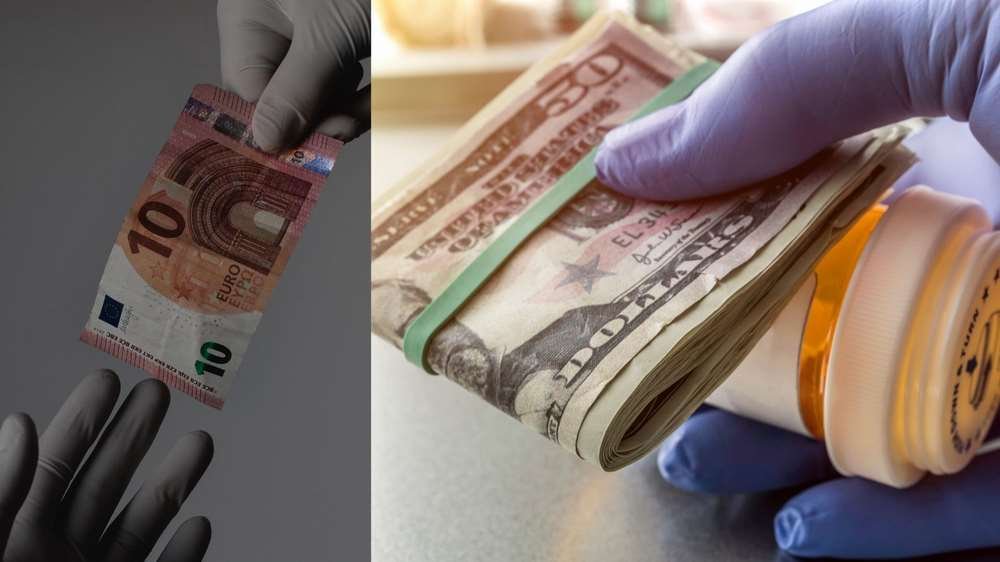Use of cash after COVID-19
Published by Gbaf News
Posted on April 13, 2020
4 min readLast updated: January 21, 2026

Published by Gbaf News
Posted on April 13, 2020
4 min readLast updated: January 21, 2026

By Bernard Foot, Strategy Analyst at Payment HSM as a Service provider MYHSM, wonders whether COVID-19 will have a permanent impact on the usage of cash.
Recently, I looked at the question of whether using cash presented more of a COVID-19 health risk than using contactless. There was no convincing evidence either way, but it’s clear that there’s a sentiment against handling cash and that both consumers and merchants favour a move to contactless and online.
The move away from cash is nothing new of course, and the writing has been on the wall for many years. But the news of its demise has been premature, as cash had been clinging on to its role in commercial life. The question of the day, though, is whether the temporary antipathy inspired by COVID-19 will translate into a longer-term effect, and what that might look like.
Of course, if there’s an accelerated desire to move away from cash, then it will likely impact other changes that are already underway within the payments industry. I am thinking particularly of the EU’s Strong Customer Authentication (SCA) requirements. SCA is already being implemented for online banking and is due to be implemented for purchases in 2020. Some consumers will see the attraction of enhanced security and so be more inclined to use their cards. But getting people to accept the need for security is a bit like getting kids to eat their vegetables – you know it’s good for them, but they don’t necessarily like it.

Bernard Foot
So, the key factor moving forward will depend on how frictionless the implementation of SCA is – implementers must meet certain requirements, but they can choose how they do that. The latest version of 3-D Secure (now called EMV 3DS 2.2) is designed to enable payment institutions to meet the requirements of SCA and has put a lot of thought into keeping the process frictionless and avoiding customer-terminated transactions. By providing a lot more information about the transaction and the cardholder to the issuer it allows distinctions to be made between low-risk transactions (such as buying a loaf of bread from the shop across the road) and high-risk transactions (purchasing a hi-tech TV in a country you’ve never been active in before). The low-risk transactions should go through transparently, while the high-risk transaction will require some kind of multi-factor authentication, most likely involving a mobile device.
If SCA for online banking is anything to go by, this will probably accelerate the use of mobile devices for payments – 3DS implementations will probably result in the mobile device being a lot more convenient to use than plastic. Here’s how my online banking works if I am using a PC:
Whereas, if I am using my mobile phone:
That’s it. Even if I’m already working at my PC, it’s easier to pick up the mobile to do online banking.
This brings me to another question that interests me – if there is a switch from cash to card or mobile, will the switch be to credit or debit accounts? The statistics and predictions are quite conclusive – the crown goes to debit. For example, UK Finance’s UK Card Payments 2018 report predicts that by 2027 each UK adult will make 5 transactions a month by credit card, but 28 by debit card (as opposed to 5 and 20 in 2017).
Personally, I’m a bit bemused by this preference for debit cards. I’m from the generation that grew up with credit cards. So, although I never used the (horribly expensive) credit capability, I got used to enjoying interest-free deferred payment, being able to check my statement before making payments, making a single consolidated payment, cardholder rewards, and protection against fraudulent, disputed, or failed transactions. The only time I use a debit card is to make ATM withdrawals.
But a younger colleague had a diametrically opposite view – she always used her debit card. For her it was far more important to always know the state of her finances without the possible surprise of a big bill at the end of the month.
So, the preference for debit probably has a generational effect, but I guess the biggest factor is the lower barrier to getting a debit card compared to getting a credit card.
What do I conclude from all this? There will probably be a move away from cash accelerated by COVID-19, which will typically be manifested as debit transactions using mobile devices.
Explore more articles in the Finance category




